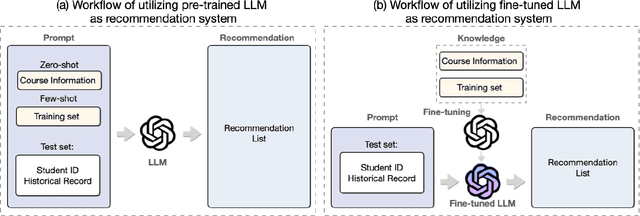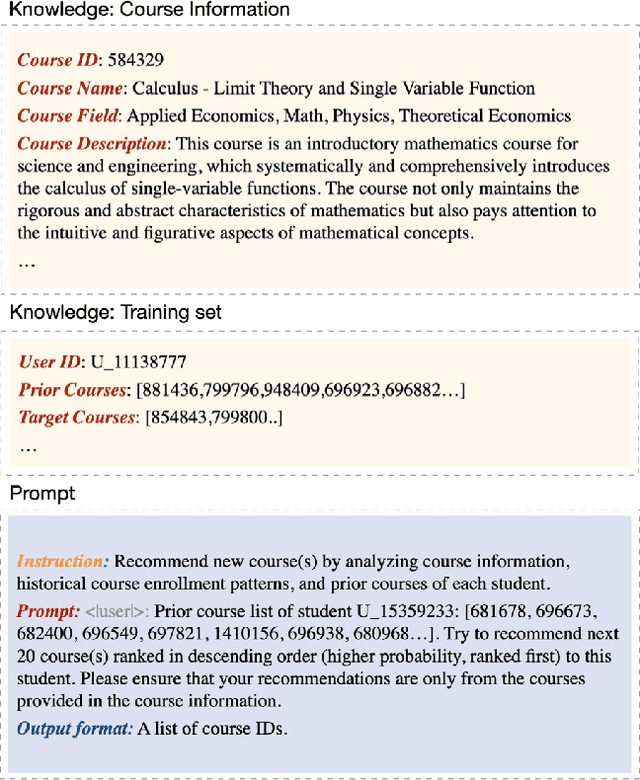Agoritsa Polyzou
How Good Are Large Language Models for Course Recommendation in MOOCs?
Apr 11, 2025



Abstract:Large Language Models (LLMs) have made significant strides in natural language processing and are increasingly being integrated into recommendation systems. However, their potential in educational recommendation systems has yet to be fully explored. This paper investigates the use of LLMs as a general-purpose recommendation model, leveraging their vast knowledge derived from large-scale corpora for course recommendation tasks. We explore a variety of approaches, ranging from prompt-based methods to more advanced fine-tuning techniques, and compare their performance against traditional recommendation models. Extensive experiments were conducted on a real-world MOOC dataset, evaluating using LLMs as course recommendation systems across key dimensions such as accuracy, diversity, and novelty. Our results demonstrate that LLMs can achieve good performance comparable to traditional models, highlighting their potential to enhance educational recommendation systems. These findings pave the way for further exploration and development of LLM-based approaches in the context of educational recommendations.
FaiREO: User Group Fairness for Equality of Opportunity in Course Recommendation
Sep 13, 2021



Abstract:Course selection is challenging for students in higher educational institutions. Existing course recommendation systems make relevant suggestions to the students and help them in exploring the available courses. The recommended courses can influence students' choice of degree program, future employment, and even their socioeconomic status. This paper focuses on identifying and alleviating biases that might be present in a course recommender system. We strive to promote balanced opportunities with our suggestions to all groups of students. At the same time, we need to make recommendations of good quality to all protected groups. We formulate our approach as a multi-objective optimization problem and study the trade-offs between equal opportunity and quality. We evaluate our methods using both real-world and synthetic datasets. The results indicate that we can considerably improve fairness regarding equality of opportunity, but we will introduce some quality loss. Out of the four methods we tested, GHC-Inc and GHC-Tabu are the best performing ones with different advantageous characteristics.
 Add to Chrome
Add to Chrome Add to Firefox
Add to Firefox Add to Edge
Add to Edge